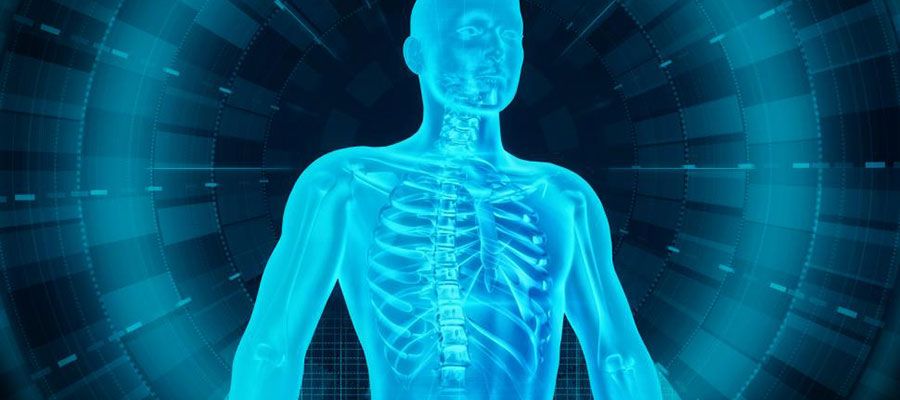Top 3 Trends in AI and Orthopaedics
Artificial intelligence is slated to improve industries from healthcare to energy, retail and beyond. But how are these new innovations affecting the orthopaedic specialty? We discuss our top 3 trends in orthopaedic-focused AI to keep an eye on as new innovations continue to change the landscape of medical practice.
Trend 1: Radiography Improvements
One 2017 study examined the possibility of using AI programs to read orthopaedic trauma radiographs. An AI program was compared to a gold standard for fractures. They found the AI program had an accuracy of at least 90% when identifying laterality, body part, and exam view, while final accuracy for fractures was at 83%. Furthermore, the program performed similarly to two senior orthopaedic surgeons’ manual reviews of the same images. As this program evolves, the ability to classify a mass amount of radiographical images and link those images to outcomes should have a major impact on efficiency and productivity in the orthopedic specialty.
Trend 2: Computer-Assisted Surgery
Enhanced AI applications are currently in development to make computer-assisted surgery even more accurate and successful. For example, in total hip surgery, computer assistance in placing the cup of the prosthesis is reported to have the same accuracy rate as traditional methods. Additionally, mapping CT and/or MRI scans to physical bone can allow a computer system to navigate for a surgeon, improving knee replacement implant positioning and creating a much smaller incision for the patient.
Trend 3: Virtual Nursing Assistants
Virtual nursing assistants could reduce unnecessary visits and take workload off of medical professionals. According to Syneos Health Communications, 64% of patients reported they would be comfortable with AI nurse assistants. Patients perceive the main benefits of virtual nursing assistants as 24/7 access to a program that would provide answers and general support, especially in the form of general health monitoring and answering medication questions. Potential benefits of virtual nursing assistants for practices include performing actions that do not require medical expertise to complete. For example, directing patients to the correct exam room or relaying treatment costs.
AI is making great strides into the orthopaedic profession. As such, Exscribe’s CEO, Dr. Ranjan Sachdev, recently obtained a certification in AI technology to propel Exscribe into the future while embracing AI’s potential for EHR systems. You can find out more here.



